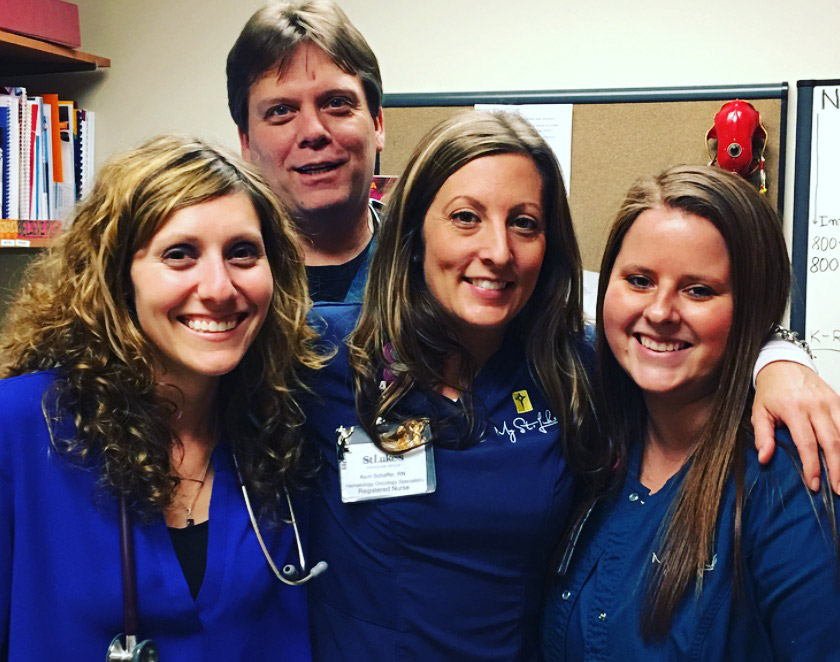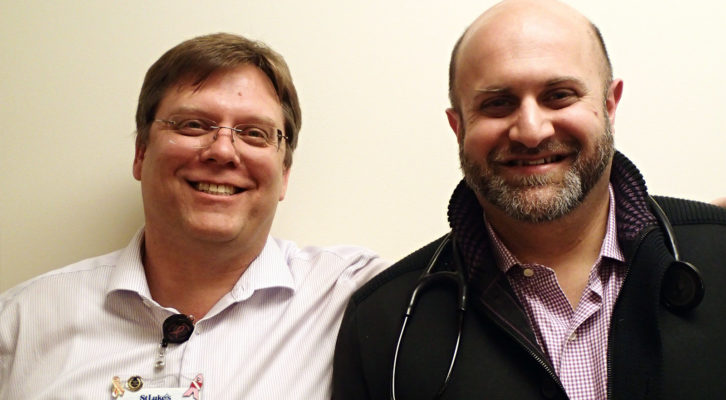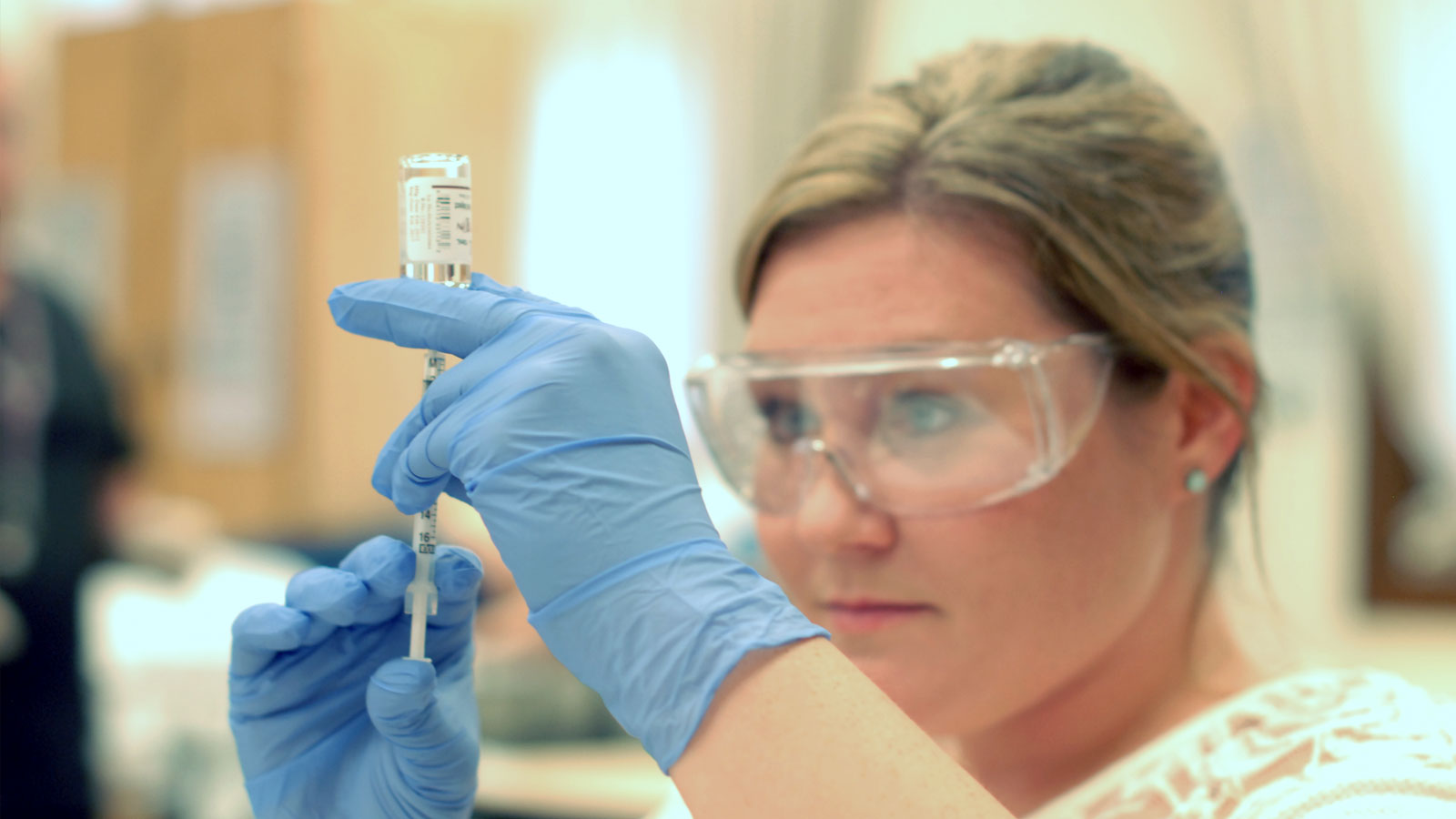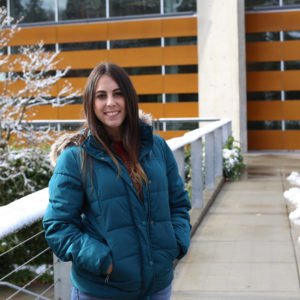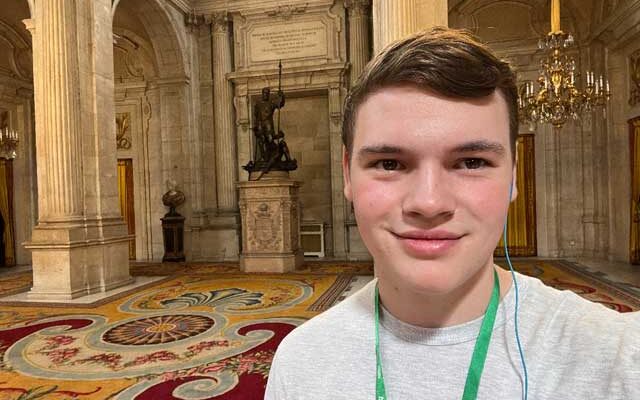Medical Assisting Program Alum Jeffrey Garbacz Takes On Management Role in Expanding East Coast Oncology Units
Following an announcement this month that Peninsula College will expand capacity in their allied health programs, the college will be holding its first Allied Health Job and Student Recruitment Fair. PC is joining forces with healthcare providers in Clallam and Jefferson counties to grow their allied health programs as part of a pilot project to address a critical community need for registered nurses, medical assistants and certified nursing assistants.
We caught up with busy Medical Assisting Program alum Jeffery Garbacz recently to talk about how his PC experience helped shape the career he has today.
When did you become a PC student and did you know going in that you wanted to be in the MA field?
I started in the Peninsula College Medical Assisting Program at the end of 2013 because it was one of the programs the Veteran’s Retraining Assistance Program would fund, fully intending to use it as a stepping stone. My original plan was to continue on and get a nursing degree after I had some real world experience. I wanted to see where I enjoyed working in the medical field, where I felt I belonged. That didn’t turn out to be nursing, but the MA degree was still a stepping stone, that helped me get to where I am.
Did you receive any scholarship monies while you attended?
A good portion of my schooling at PC was paid for by the Veteran’s Retraining Assistance Program which I found out about when I was laid off and filed for unemployment. I saved all the extra money from that, and got student loans in order to finish my schooling. Student services, especially Terry Smith who handles everything for all the vets is amazing. I have been taking courses at both Penn State and Capella after leaving PC, and can say that the student services staff at PC runs circles around the student services at the other larger schools.
What instructors resonated with you during your PC journey? Why?
Rachel Pairsh, the director of the MA program had a great impact on my PC experience. Coming back to school is like any journey in our lives. There are times you second guess yourself, question your choices. Rachel kept me focused, she knew I had larger goals and really was not only an instructor, but a mentor. The other instructors in the program, Dr. Lapin and Debi are also excellent at getting people prepared for what is outside of the classroom.
What was your evolution from MA Program grad to your current role as Practice Manager?
As I finished the MA program, I specifically asked Rachel for a practicum that had the most hands on experience I could get. I told her that because I was not looking to get hired in my practicum that I just wanted to be in the trenches somewhere. I was placed at the VIMO clinic and loved being able to work with the patients and volunteer providers there. It isn’t about seeing a patient in a certain number of minutes, or keeping profits up, it is about helping people in need there. I continued to volunteer after my practicum there while I was doing more courses to finish pre-nursing and wrap up another associate degree. As I finished up my other courses at PC, VIMO was growing and made me an offer to take a paid position as the clinic manager. I was there for about a year and a half total, working closely with Rachel’s MA program as a practicum site, and being a preceptor for students from the program.
My wife and I had to come to Pennsylvania for a while so she could help with her family. I started taking courses at Penn State and was working at St. Luke’s University Health Network as an MA in the oncology department. I actually avoided management while in school so I could focus on studies. In a matter of three months I was moved from my MA position with the GI Oncology team to the MA position with the Chief of Medical Oncology for the network of 10 hospitals. I was his MA for several months when the practice supervisor left for another position. The departing supervisor, the practice administrator, the chief, and some other physicians all recommended me for the practice supervisor position.
I now manage the day to day operations of seven – soon to be eight – medical oncology units that are in Pennsylvania and New Jersey. We have 14 provider teams that rotate through these locations, and each team has a specialty, GI cancer, breast cancer, melanoma, blood disorders, lung cancer, head and neck, etc. We run a lot of clinical trials, and we have some of the best physicians in the field. Our chief is known around the world as one of the top in the field for melanoma. The network is one of the top 15 teaching hospitals in the country and is partnered with Temple University. We have the oldest nursing school in the country, and have been one of the Truven/Watson Analytics Top 100 Hospitals for a total of six years, including the last four in a row. Our department had over 52,000 patient visits last year, and is expected to have over 60,000 visits over the next fiscal year.
Oncology is unique, you see the same patients many times, sometimes every week for long term. You get to know them, and the families. It is not an easy place to work. Just like VIMO we can focus on the care of these people and not worry as much about someone seeing the patient in a set time frame and just moving on to the next patient.
How did your PC education prepare you for where you are now?
I did have some management experience prior to attending PC. What PC gave me was the medical knowledge I needed and better communication skills. Just taking a variety of courses at PC taught me to open my mind a little more and to look at things from many different perspectives.
